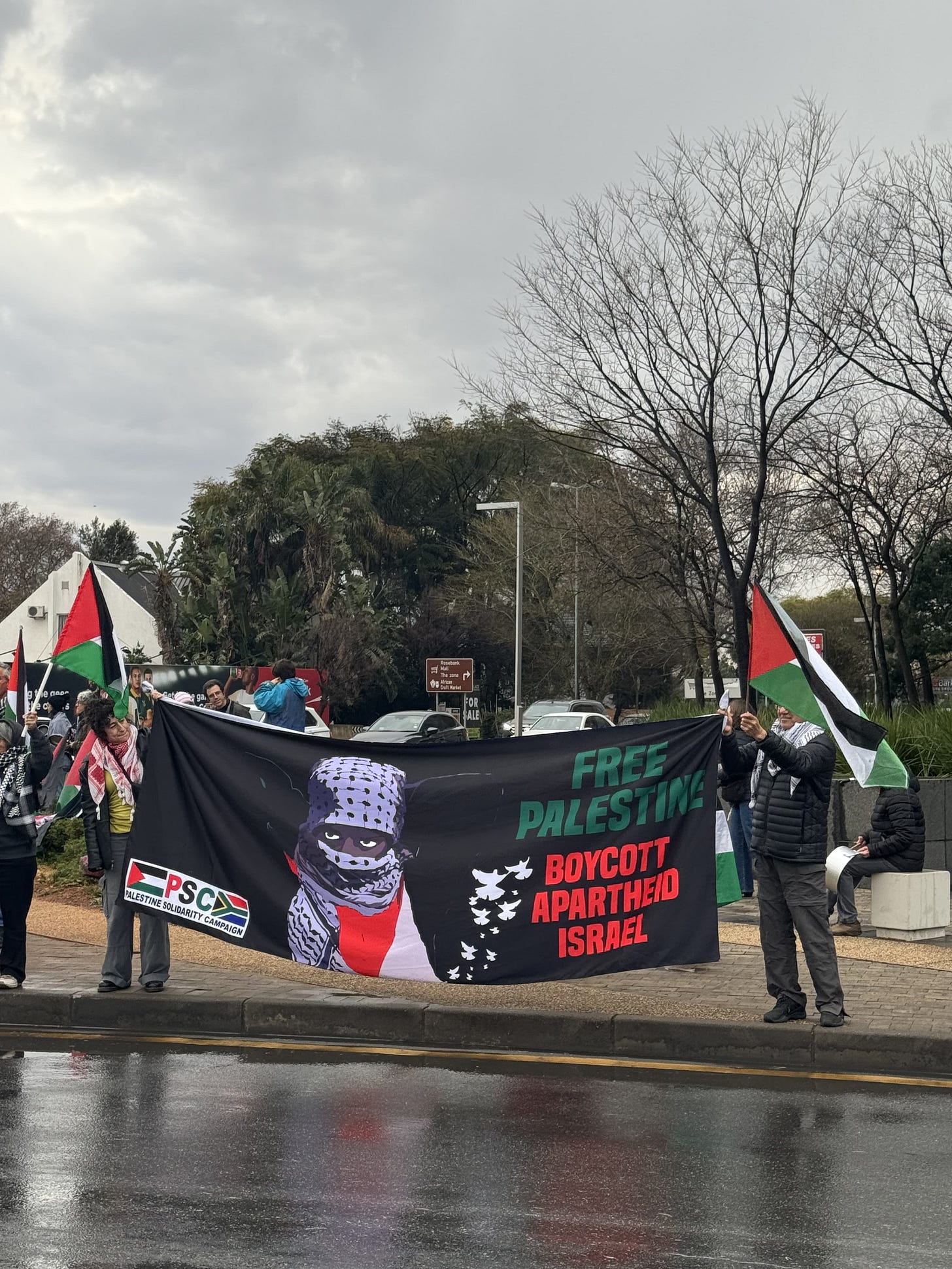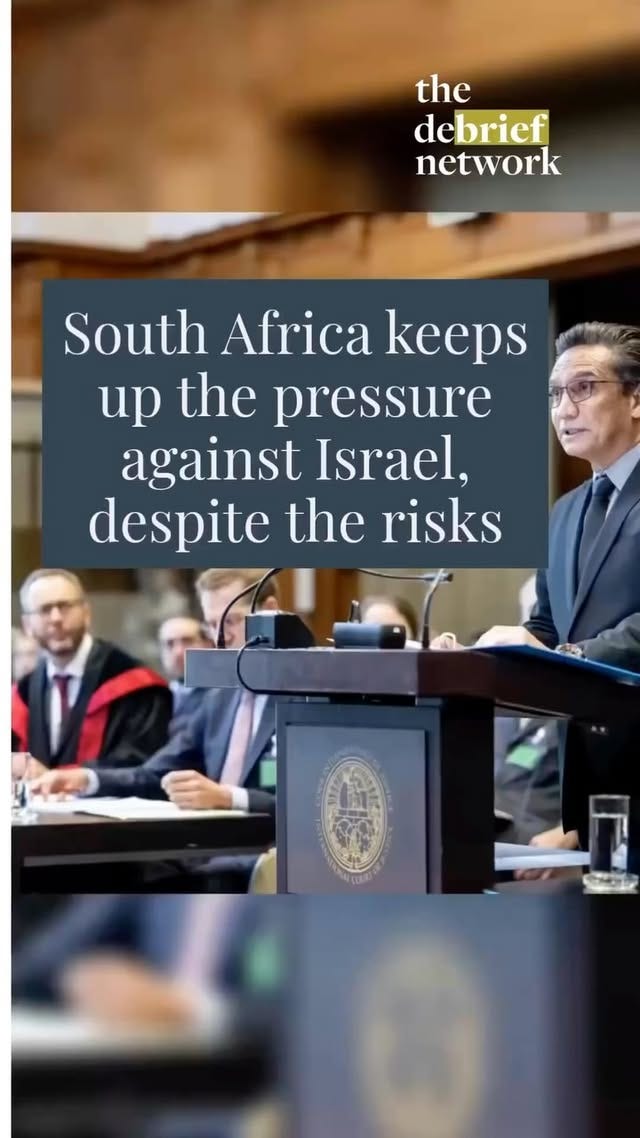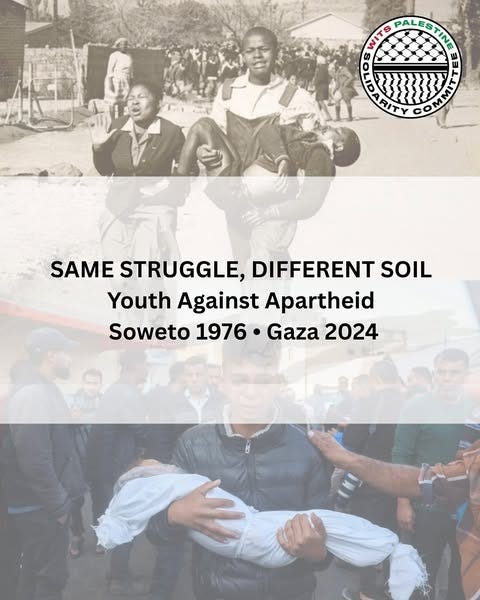What difference can fifty people make?More than you think
People showed up in Johannesburg to bang pots and pans to draw attention to Gaza.
On a cold and wet Friday afternoon in Johannesburg, I went to a busy intersection for a protest in support of Palestine.
When I arrived, I stopped in my tracks and watched a mix of people, young and old, and of different races, banging pots and pans. Some were holding up banners and signs in solidarity with the people of Gaza.
I eventually crossed the road to join them.
I had seen a poster earlier in the week on social media and decided to attend the picket on the corner of Glenhove and Oxford roads, which was organised by the Palestine Solidarity Alliance.
The instructions were simple: bring your pots and pans for drumming and come and make as much noise as you can.
This was in support of a global effort to raise awareness of the persistent starvation in Gaza.
I was intrigued by the concept.
Why pots and pans? I questioned if it had any symbolic value.
I did a bit of reading and discovered that this was a method of protest called cacerolazo, a form of protest that originated in France and is now used worldwide to highlight political issues and create solidarity amongst participants.
It has been used in protests all over the world. But in Gaza, where women hit their pots in frustration after queuing for hours for food, this had particular symbolism.
Half a million people in Gaza are currently facing starvation, with the entire population suffering from acute food shortages due to Israel’s aid blockade on the strip.
Produced by: Ayesha Vahed
As I crossed the road and joined the protest, I noted in surprise that there were no more than fifty people protesting, and was told by one participant, Fatima, that this was one of the bigger turnouts in recent months.
The popular McDonalds in Rosebank is a central point in Johannesburg, which sees a lot of traffic on a Friday afternoon.
It is also a well-known fact that our government has spearheaded the matter at the ICJ and that many organisations in South Africa, such as Gift of the Givers, are successful in raising huge amounts of money to facilitate aid and support to Palestinians.
Produced by: Ayesha Vahed
I thought about what was keeping people away from this particular type of solidarity.
Were people becoming despondent and giving up hope, I thought.
Or was there a belief that this type of solidarity no longer held much value?
I had expected bigger numbers.
I had been to protests in other cities of the world, such as London and Amsterdam, over the past two years, and even the smaller protests generally ranged in the hundreds.
Did this mean that South Africans had failed at this type of solidarity?
I reached out to Firoza Mayet, a senior member of the Palestine Solidarity Alliance, to get some answers.
Firoza had a completely different view about the success of the march.
“We cannot compare South Africa to first-world countries, where fifty per cent of our (youth) population is unemployed. People have to prioritise basic needs. We started off as five people on that corner, and we are now up to a hundred on some days. Some people have been standing there for more than a year.”
She went on to emphasise that South Africa does not have as many people from the diaspora as other countries.
So, I asked: “Is there actual value in South Africans protesting for Palestine on a weekly basis?
“Yes, she answered confidently.
“Ordinary people can voice their concerns and take governments to account. This is a tool that needs to be protected. It’s what helped end apartheid.
A post shared by the Palestine Solidarity Alliance
“And does it make a difference to the Palestinians?” I enquired.
“Whenever I speak to Palestinians in Gaza, they are always really happy and grateful when they watch our protests online or hear about them. It helps them to feel connected to the rest of the world. It inspires them to continue their resistance and shows them that they are not alone. These protests educate South Africans as well. We have new people joining all the time.”
I left the conversation with Firoza feeling lighter.
While we may not have the same numbers as other countries, we have individuals who have spent more than a year dedicating every Friday to educating fellow South Africans.
And despite being a country that suffers from poverty, unemployment and crime, our government still stands at the forefront of the legal battle against Israel internationally.
It changed my perception completely. I left understanding something new: amid poverty, unemployment, and crime, there are still South Africans who dedicate every Friday to a corner of Rosebank, where they educate and encourage others to join the protest against a genocide.
And while the numbers may not be as big, they are increasing weekly, and the participants stay committed for nearly a year.
Besides, if Palestinians find value in our efforts, despite the smaller crowd, that makes it all worth it.










